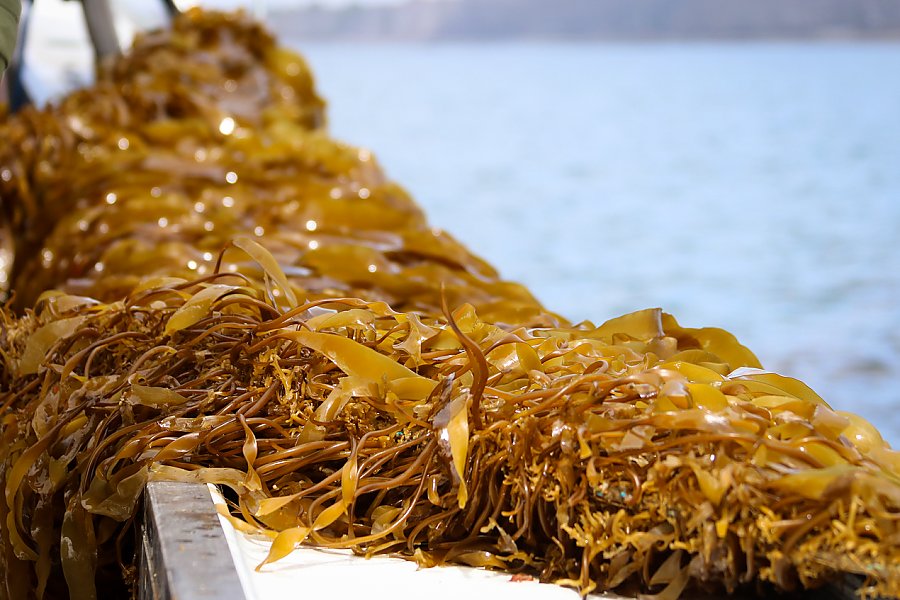
Ralphs
Discount tickets available at Ralphs for a limited time
A recent study published by the Aquarium and collaborators finds potential in messages that emphasize the environmental benefits of sustainable aquaculture.

Credit: NOAA Fisheries
March 20, 2023
Sustainable seafood and seaweed farming are environmentally friendly alternatives to land-based food. The key here is sustainable. Unfamiliarity and outdated narratives about harmful aquaculture or seafood farming have hindered social acceptance of the aquaculture industry in the United States. A new study published by the Aquarium of the Pacific and collaborators from the School for the Environment at the University of Massachusetts Boston, University of Southern California Sea Grant Program, and the Department of Environmental Studies and Sciences at Santa Clara University reveals how perceptions of seafood and seaweed farming can change in respondents and who they saw as the most trusted sources to deliver those messages.
“Our results suggest that sustainability themes, delivered by trusted sources, can convert naysayers regarding aquaculture into supporters.”—said Dr, Peter Kareiva, who is an environmental scientist, an author on this study, and Aquarium of the Pacific president.
The study focused on people residing in the western and northeastern coastal states of the U.S.—the very stakeholders who would need to live with an expanded marine farming industry. “Interestingly, economic benefits and provision of jobs were not the benefits that survey respondents found most persuasive. Instead, what changed minds was messages emphasizing the environmental benefits of seafood and seaweed farming,” says Dr. Kareiva.
These benefits include having a stable and well-managed ecofriendly alternative to land-based foods and providing a sustainable alternative to wild fisheries. Altogether, this work suggests that communicating the potential environmental benefits of seafood farming expansion in this nation has the potential to shift public perceptions.
A significant fraction of survey respondents reported no or low familiarity with seafood farming: 49 percent had “never heard” of or “knew little about” marine aquaculture, and 61 percent of participants had “never heard” of or “knew little about” seaweed farming. The likelihood that respondents held a positive opinion of the sector in question increased with higher baseline levels of familiarity.
Data also revealed that seafood farming received more favorable responses from surveyed individuals after watching a video series produced by the Aquarium of Pacific, entitled Ocean to Table: Stories of Food, Farming, and Conservation. This video series highlights responsible marine aquaculture or ocean farming in the U.S. This video program brings together seafood farmers, scientists, and chefs from around the country to share their stories. Each video showcases a different ocean farm and different types of seafood. Over half of the respondents who began with a negative opinion of seafood farming, shifted to a favorable opinion after watching one of these videos.
This study also asked respondents about what sources they most trusted when it came to aquaculture. The highest ranked trusted sources were scientists, seafood farmers, and aquariums/museums. The paper entitled “Are all benefits equal? An exploratory analysis of coastal perspectives of seafood farming expansion in the United States” is now published in The Journal of the World Aquaculture Society. This study was funded by the University of Southern California Sea Grant Program, World Wildlife Fund, and California Sea Grant Program.
In addition to Dr. Peter Kareiva, the collaborators include Brianna K. Shaughnessy from the School for the Environment at the University of Massachusetts Boston; Amalia Almada from the University of Southern California Sea Grant Program with the Wrigley Institute for Environmental Studies; Kimberly Thompson, who was the director of the Aquarium of the Pacific’s Seafood for the Future program during the time of research; and Michelle Marvier from the Department of Environmental Studies and Sciences at Santa Clara University.

Discount tickets available at Ralphs for a limited time